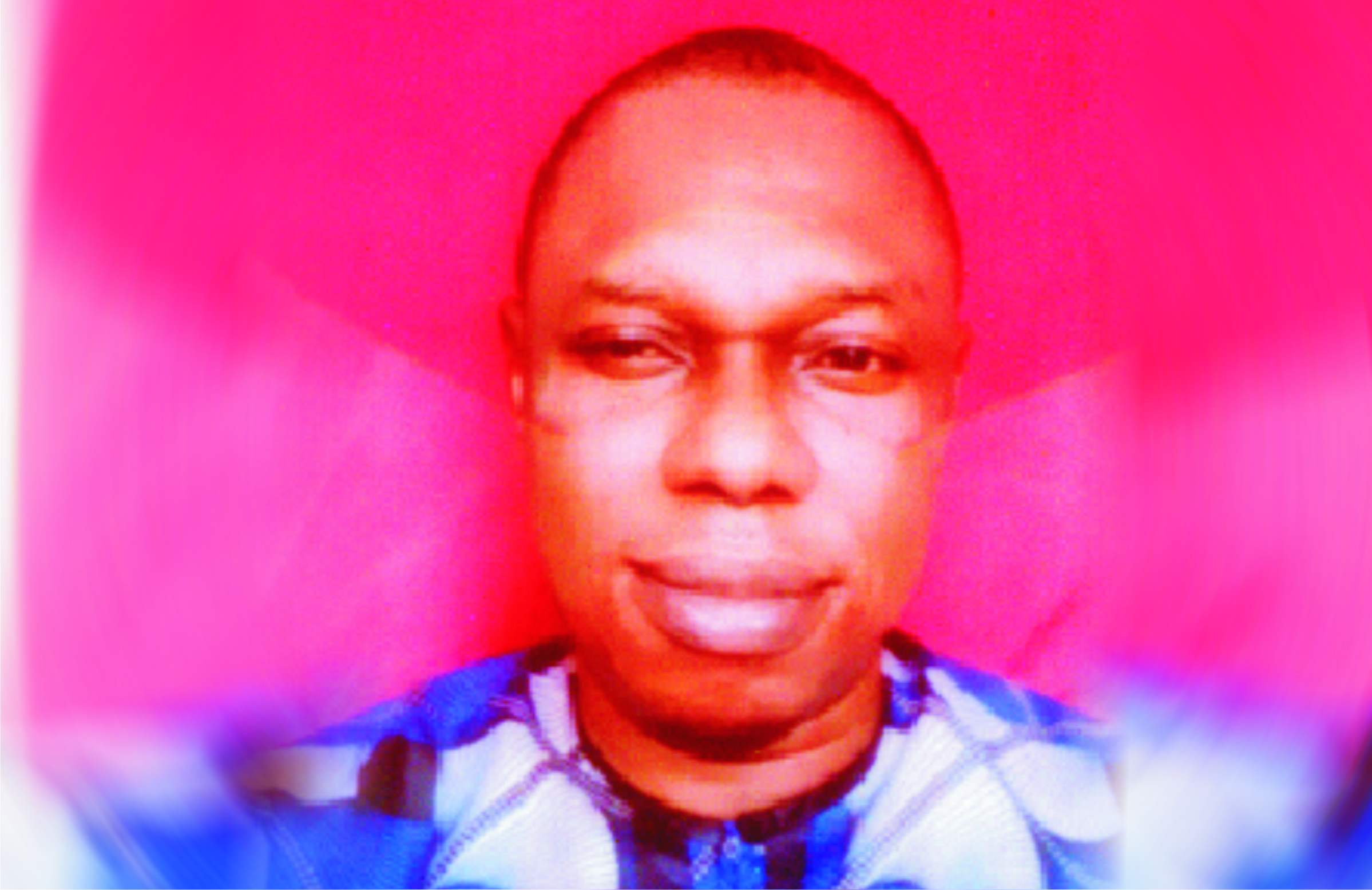Lifestyle
The Reward Of The Writer

The new generation of African novelists, I think are beginning to realise that just like their counterparts in the Nollywood film industry, they stand a better chance of getting global recognition if their story lines are strictly based on the African settings which reflect the day-to -day living realities of the vast majority of their readers.
Their novels could at times be fictions of historic figures or ancient history, but what should be paramount is that when a potential reader picks up any novel by this new authors, he or she should be able to identify with the story line, feel at home and at the same time feel truly satisfied that the money and time spent on the purchase of the book is worth it.
Today,new authors like Chigozie Obioma, Jumoke Verssimo, Bassey Ikpi and Reward Akwu are making interesting contributions to the language of Literature in Nigeria with their story telling.
A look at Fool’s Paradise, one of the novels by Reward Akwu, the Rivers-State born journalist and author, is an indication that gifted writers still abound who can keep up with the traditions of Chinue Achebe, Elechi Amadi and Cyprian Ekwensi.The African culture, traditions and belief system are very much pronounced in this second novel which though a work of fiction, is not too far from modern day reality as what is reflected in the novel is still with us in the 21st century.
Fool’s Paradise, is a story of love, infatuation, cheating, dishonesty, abuse of trust, primitive belief system,deceit, gender inequality,adultery and tragedy.
The novel in essence is about two major characters who met ,fell in love and got married but had to divorce because of the false belief that if a man does not have a male child, he is not a complete man.
“Fool’s Paradise is rich in the use of proverbs,suspense and is a fun to read from the first page to the last.
I believe that Mr Akwu’s Fool’s Paradise is aptly titled as some individuals still find themselves in similar situations as captured in this work of fiction.
Excerpts: “Tears were coursing down their cheeks in speedy drops as they sat in their mother’s room in gloomy silence, wondering why their father should subject them to emotional stress for something that was not their own making. It was wrong for anyone to hold them responsible for what the Creator in his infinite wisdom had done.
“Their father’s utterances and actions for some time now were extremely unbearable. They were literally living in hell. No peace. While they were still bemoaning their fate, Ephraim Ichedu walked into the room to reiterate his resolve, “Grace,” he uttered in a menacing tone, his eyes sweeping around the room to take in others.
“I have told you in a very clear language that I don’t want to see you and your daughters in my house again.”
Tonye Ikiroma-Owiye
Health
Getting Trimmed Naturally
There are a lot of misconceptions about weight gain.
The first is that weight gain comes from extra calories we do consume that we do not expend. Experts say we eat too much and exercise little. So if one get fatter, then, surely he or she must be eating too much.
The other misconception is that once we cut our food, then, we will naturally become trimmed. All these are hinged on the diet theory, which only works for some time.
Over the past 40 years, studies have shown that you can not get clinically significant effect from cutting down on your calories. Even though experts are saying that sloth is responsible for weight gain- they overlook one basic truth that dieting only works for a short period.
The new study that seems to break those myths about body fat is now revealing some stunning facts. The kind of food we eat makes us fat. Two scientists at University of Pennsylvania, Mitchell Lazar and Cardiologist Allan Sniderman at McGill University, all in the United States have shown that food that we eat often makes us pack in flesh. These include bread, plain baked potatoes, and plain pasta, rice, sweet corn. They confirmed that fatty foods are not the enemy but easily digested carbohydrates, while steak, burgers, cheese or sour cream help us lose weight and keep our heart healthy.
This sounds ironical, but it has been discovered that those who do diet and avoid those foods end up getting hungry. What happens is that when you conserve energy or burn less energy, you are bound to add more flesh. Many public health authorities want us to practise energy balance, which is a new way to say that you should not take more calories than one expends.
No matter how one counts what he or she eats, it is impossible to determine calories and know when we are over board. No matter how good you are at counting calories, you can’t do it. So its couple of sips of soft drinks and few bites of humburger that can make you add weight. That means it at the point when we eat extra than the body want that the body store excess as fat.
The myth of exercising to reduce weight is really making waves. Exercise is helpful but it is not the main ingredient for fat burning. The funny truth is that the two things we tell people to do in order to lose weight-eat less and exercise more- are the exact two things that make one more hungry. Thus, there is need for balance. If one must exercise, then it should be done moderately so as to allow the body to recover the strenght.
The reality is that insulin is the primary hormone that makes one to add weight, especially one eats food that spikes insulin like bread, biscuits, sweets, soft drinks. It is refined carbohydrates that raise insulin levels in the body. Explained in simple terms, your fat tissue is more like your wallet, and your meals are like going to the ATM. You know how you use the ATM: You put the cash in your wallet and gradually spend it, and when you get too low on cash, you go back to the ATM. It is the insulin that locks the money in your wallet, so you keep going to the ATM, and your fat cells are getting fatter and fatter. More often, you become hungry and you eat again because the insulin can not get at the fatty acids leading to weight gain.
Low carb diet is key if you are to get trimmed. In Africa where stables are more of carbohydrate it is best to choose those with fibre. It is difficult to follow the Atkins diet like eating skinless chicken and green salad, melted mozzarella cheese and all those western diet.
An example of a workable diet is to include eggs more often and cut down on processed foods, especially processed carbohydrate. Complex carbohydrate, and vegetables have more fibre and make you get filled quickly. Instead of Irish potato, go for sweet potatoes, oats that have more fibre. I advise people to eat garri than processed plantain and wheat meals. By the way, processed wheat can worsen the body ails.
By: Kelvin Nengia
Health
Eye Expert Cautions On Rays From Electronics
An optometrist, Dr. Matthew Daniels says many Nigerians are suffering from refractive eye problem which can be corrected.
Besides, he disclosed that most of the eye problems common these days come from rays from long use of electronic devices.
The one time Chairman of Business Development Committee of the Nigeria Optometery Association(NOA) explained that rays emitted from electronic devices such as phones, television, computers have effects on the eyes.
He urged for caution and toning down of light from phones and computers so as to reduce eye irritation and other eye maladies that may affect sight.
In a chat with The Tide, Dr. Daniels said the refractive eye error maybe long sight or short sight which can be corrected.
However, he decried that most Nigerians do not take the health of their sight seriously and as such, suffer from eye defects which could have been treated without much expenses.
Commenting on the planned program me by the Federal Government to provide eye glasses to Nigerians, Dr Daniels observed that it may be difficult to provide free eye glasses to five million Nigerians.
For him, what the people need is more eye clinics and hospitals at the grassroots, as he lamented that most eye sight challenges are common in the rural areas.
By: Kevin Nengia
Health
WHO Raises Alarm Over Increased Incidence Of TB, Others
The World Health Organisation(WHO) has raised alarm over increased incidence of tuberculosis, HIV and malaria as it charged member countries to make health an urgent matter of policy focus.
Dr. Tedros Adhanom Ghebreyesus, WHO Director-General made the charge at the 78th session of the United Nations General Assembly (UNGA 78) in New York stressing need to put health for all on the highest political agenda.
WHO’s DG appeal comes as the world faces multiple humanitarian and climate-related crises which are threatening lives and livelihoods around the world.
The world health apex body observed that progress in reducing infant and maternal mortality has stagnated (in some regions, while progress in tackling infectious diseases like HIV/AIDS, tuberculosis (TB) and malaria has also declined.
It noted that many parts of the world are also witnessing rollbacks in sexual and reproductive health and rights, as
access to life-saving tools is becoming uneven across the world, with millions unable to afford or obtain needed care.
In addition it said no communicable diseases and mental disorders, which account for over 70% of deaths globally, threaten social and economic development across the world.
“Ill health robs individuals, families, communities and entire nations of opportunities to grow and flourish,” Dr Tedros said.
The body decried that billions of people cannot access or afford essential health services and as such are exposed to poverty, abd other preventable and treatable diseases like TB.
WHO’s call to accelerate the achievement of health targets comes ahead of the Sustainable Development Goals Summit (SDG Summit) and an unprecedented number of health-focused high-level meetings at UNGA, aimed at strengthening pandemic prevention, preparedness, and response, delivering universal health coverage (UHC) and ending TB.
As government leaders gather to make commitments around three major health issues, they have a chance to demonstrate that health is an investment, not a cost, and is fundamental to thriving, resilient families, societies and economies.
“If COVID-19 taught us nothing else, it’s that when health is at risk, everything is at risk,” WHO DG said .
Recalling the effect of the Covid19 pandemic, he lamented the enormous economic, social and political upheaval, and effect on progress towards the health-related targets in the Sustainable Development Goals.
-

 News3 days ago
News3 days agoFG Set To Receive Fresh $2.2bn World Bank Loan
-

 Business3 days ago
Business3 days agoAviation Union Threatens Strike Over Revenue Deduction
-

 News3 days ago
News3 days agoNCCSALW Destroys 6,000 Illicit Arms In Six Geo-Political Zones
-

 News3 days ago
News3 days agoAkpabio Seeks Nigeria, Serbia Parliamentary Collaboration
-

 Rivers3 days ago
Rivers3 days agoNCSU Hails Release Of Fubara’s Supporters
-

 Maritime3 days ago
Maritime3 days agoTin Can NCS Generates N303.9bn In Q1
-

 News3 days ago
News3 days agoOur Policies Aligning With Tinubu’s Renewed Hope Mantra For Nigeria -Gov Fubara
-

 Business3 days ago
Business3 days agoPaper Industry’s Economic Contribution Hits N398bn

